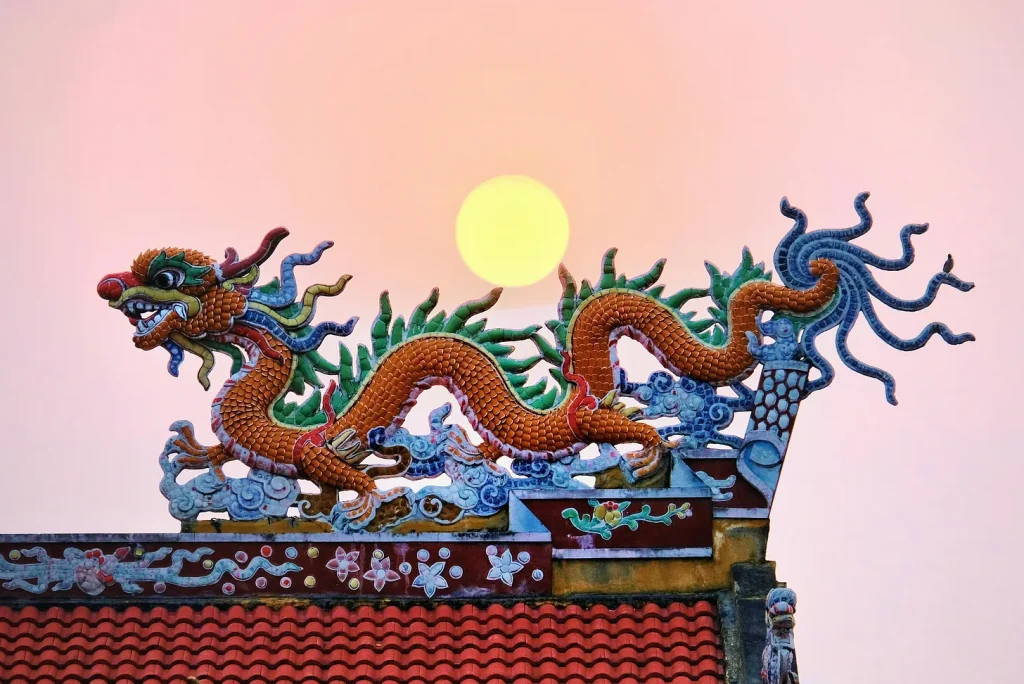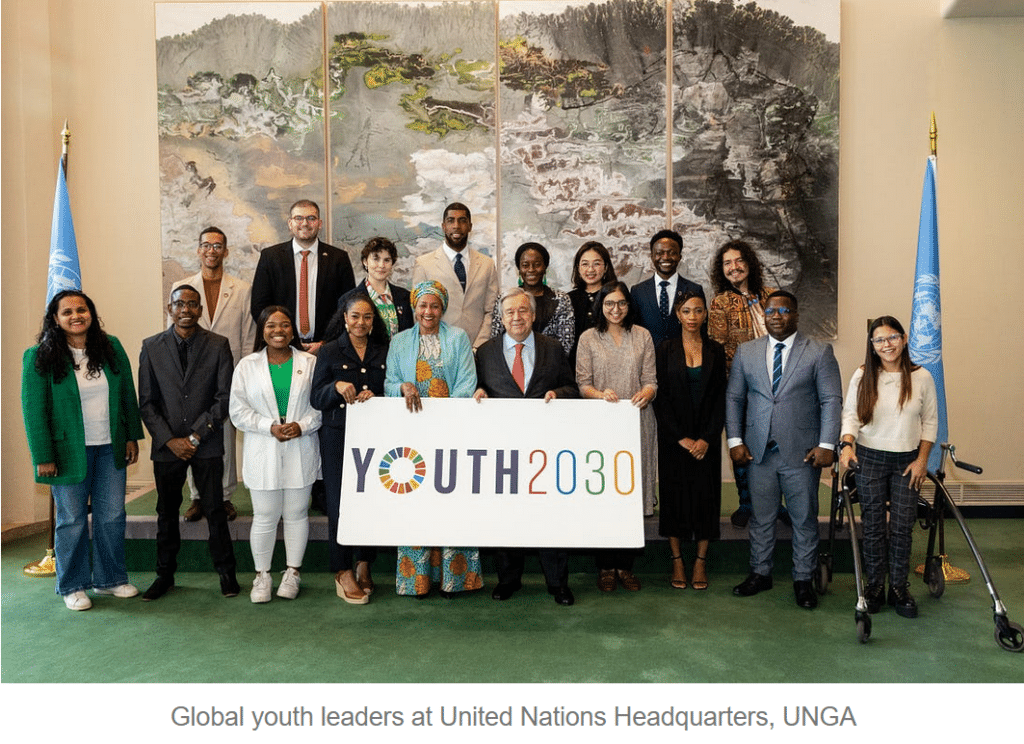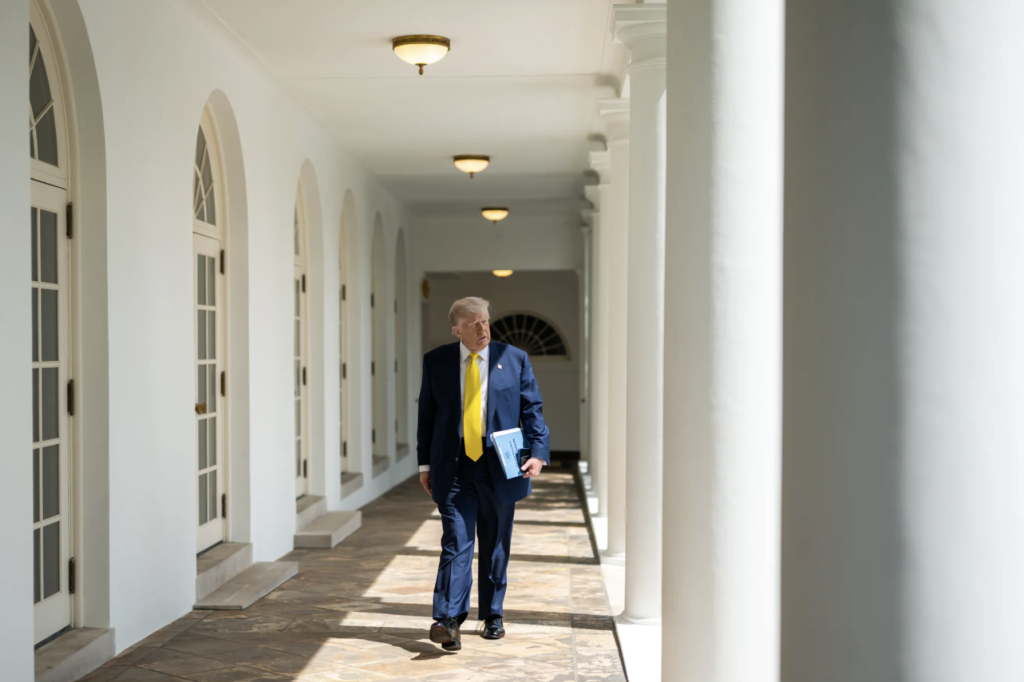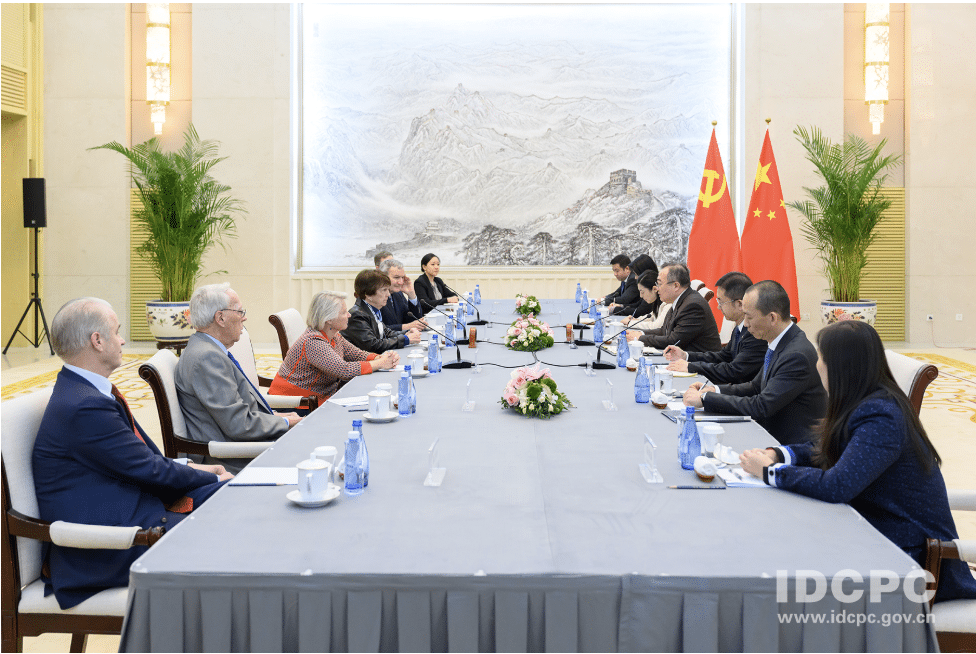Interview with Rana Mitter: How China’s WWII Memory Fuels New Nationalism
In The Dragon’s Shadow w/ Sebastian Strangio
- Interviews
 Henry O'Connor
Henry O'Connor- 04/29/2025
- 0

How does an ascendant China impact its Southern neighbors? Sebastian Strangio’s Book: “In the Dragon’s Shadow: Southeast Asia in the Chinese Century” weaves both historical analogies and political commentary into a holistic picture of Southeast Asia’s role in the 21st century. From Burma to Brunei, China’s rise will indelibly impact ASEAN as it begins to make its mark on the world. The question now is how a newly assertive China chooses to chart its course.
Beginning in the overgrown ruins of a U.S. Naval base in the Philippines, “In the Dragon’s Shadow” shines a light on China’s relation to Southeast Asia through its peoples, politics, and the manifestations of its hefty economic investment all over the region. While neither China nor ASEAN can manage the relationship alone, the book is an indispensable resource in understanding their relationship’s past, present, and future.
Sebastian Strangio is a freelance journalist who focuses on news and events in Southeast Asia. He began his career at the Phnom Penh Post in Cambodia and has written for more than 30 leading publications including The New York Times, Foreign Affairs, and The Economist. He is currently a Southeast Asia Editor at The Diplomat and is the Author of “Hun Sen’s Cambodia”. In addition to his work as a journalist, Sebastian is a leading commentator on political developments in Southeast Asia and has consulted for a number of economic risk firms and non-governmental organizations.
Henry O’Connor: How has China’s relationship to Southeast Asia developed? Why did you decide to write about it?
Sebastian Strangio: It was a theme that I had been coming across through my reporting and travels for some time. In mainland Southeast Asia particularly, you can see signs of China’s growing influence in everything from infrastructure projects, bridges, and highways, to the increasing presence of Chinese expatriate communities in places like Phnom Penh and Vientiane. This is quite a change from the decade or so prior, when I had arrived in the region, and it was clearly becoming a more important question for foreign governments like the United States and its partners and allies. In Cambodia, I saw the physical manifestations of China’s influence as well as ideological manifestations. China is enabling the Cambodian government to shrug off all dependence on Western money and lay aside all the good governance promises that were attached to Western aid. I witnessed firsthand a very vivid example of how China was changing the region’s trajectory of development.
HO: Is China the primary driver of this change or is the West pushing these countries away?
SS: I think that it’s probably a combination of both. If the West had been offering Cambodia no strings attached development assistance, that would’ve reduced the appeal of Chinese money, but I don’t doubt they would have still accepted Chinese money regardless. Although, it’s hard to imagine Western governments not attaching some strings. At the end of the Cold War, there was significant moral investment in the idea of Cambodia as a new democracy and an example of how a country could transcend a tragic past and embrace liberal democratic norms. Because there wasn’t much of a strategic stake in the country, many Western officials thought they could stand on principle. Even if the West had abandoned all the human rights and good governance conditionalities, however, the assistance would’ve still looked very different from China’s trademark hard infrastructure.
HO: Is that a pattern that you see with other countries besides Cambodia?
SS: There has been a regional dynamic where countries are frustrated with what they see as Western interference in their domestic affairs through criticisms of human rights and democratic backsliding and have begun to see China as a more attractive partner. China is far more transactional and doesn’t really care about how other countries govern themselves as long as they don’t transgress against core Chinese strategic interests. Myanmar has been a good example of this and Malaysia too, where in response to U.S. Justice Department scrutiny over the 1MDB corruption scandal they gravitated toward China. It is important to note, however, that this dynamic has not necessarily dulled the concerns that these countries have about Chinese influence.
HO: Could you briefly explain what China’s “March to the Tropics” is?
SS: That phrase was the title of a book published in the 1950s by a sinologist called Harold Wiens, which described the slow movement southward of the Chinese imperial state into regions adjacent to the Buddhist kingdoms of mainland Southeast Asia. Particularly in the last 500 years, there has been a steady southward movement of Chinese immigrants and administrators that have extended the southern borders of the various Chinese empires. This largely came to an end during the height of Western imperialism in Southeast Asia, when European powers were establishing themselves and conquering countries like Myanmar and Vietnam. This imposed limits on the southward movement of Chinese immigrants and Chinese military presence and power.
While the empire turned inward and began to crumble under Western assault, this southward expansion continued in the form of immigration from southern China to the ports of Southeast Asia and further afield. Many of the large diaspora communities in Southeast Asia date from this era from the mid-19th to mid-20th century, although some are much older. I argue in my book that China is resuming this trend through integrative infrastructure projects, and through both China’s increasing maritime presence and the integration of the Mekong region with southern China. Over the past two decades, infrastructure has largely erased the geographic barriers that once kept Chinese state power at arm’s length for the kingdoms of Southeast Asia.
HO: Now that geographic barriers are lessening, do you think that China’s integrative infrastructure might allow it to strongly assert its politics in the future?
SS: China’s involvement in regional security, particularly in the Mekong region, has increased. In the last few months, China has pushed countries in the region to take much stronger actions against online scamming operations. It’s putting direct pressure on these countries including on the military junta of Myanmar to begin clamping down on these fraud operations. While China prides itself on not interfering directly in its partners’ internal affairs, we do see that China has not been shy about using its leverage over other countries to ensure that they do not oppose China’s strategic goals in the region. Now, China is also applying considerable pressure on Myanmar’s military junta as well as various ethnic armed groups to bring the civil war to an end in areas important to China. As China’s economy has expanded into Southeast Asia, its political influence and leverage have increased accordingly.
HO: Do China’s claims in the South China Sea hinder its other goal of trying to be more integrative to Southeast Asian Countries?
SS: It is a problem with certain countries, specifically the Philippines. Other countries like Malaysia, Indonesia, and Vietnam have strong incentives to maintain good relationships with China, given how important trade with China is to all of their economies, and so both sides have an interest in quarantining their disputes to prevent them from infecting other more productive parts of their relationship. For the Philippines, being a U.S. treaty ally complicates matters and President Marcos has stood up quite strongly against China’s actions in disputed parts of the South China Sea. This has reaffirmed the Chinese view that the Philippines is basically a U.S. proxy, whereas Vietnam, Malaysia, and Indonesia all profess to be non-aligned in their foreign relations to one degree or another. However, the South China Sea is just one issue of many that have created tensions with China in the past.
HO: When does China interact multilaterally and when does it interact bilaterally with these countries? What kind of relationship does China have with ASEAN?
SS: China has expanded its relationship with ASEAN steadily over the years but prefers to deal with Southeast Asian states bilaterally simply because it is large and has an asymmetry of power which can help it get what it wants, especially when it comes to maritime disputes. While China has taken part in ASEAN and has cooperated with it, particularly on its economic elements, it doesn’t want to deal with ASEAN as a collective when it comes to maritime disputes. Working in China’s favor, of course, is that each of the 10 member states has very different interests in the South China Sea, ranging from countries like Cambodia and Myanmar, who value their relationship with China more than taking a stand on behalf of other states to Vietnam and the Philippines whose maritime interests clash directly with China’s. It’s been rather easy for China to prevent these states from forging a more robust unified position that challenges China more directly.
HO: Does China’s economic rise pose a threat to Southeast Asian economics? Are Sino-ASEAN economics a zero-sum game?
SS: I don’t think it’s a zero-sum game. Economics in principle can be a positive sum game where economies grow, people are lifted out of poverty, and everyone trades and consumes in a virtuous upward cycle. China is moving more to domestic consumption now and relying less on exports because, in large part, China’s comparative advantage in cheap labor has eroded. Chinese labor is now a lot more expensive than a lot of the countries in Southeast Asia. Things are moving, but China remains an industrial powerhouse. I don’t see it as a zero-sum game, and I think that both regions will continue to grow in parallel – although the impact of the Trump administration’s tariffs remains to be seen.
HO: Some people compare China’s economic policy to Japan’s Greater East Asia Co-Prosperity Sphere; can you tell us about what that is? Do you see any links between it and China’s pursuit of integrative investments in countries like Cambodia?
SS: The Greater East Asia Co-Prosperity Sphere was the Japanese imperial project undertaken in the 1930s to create a sphere of influence in Asia and while people often reference this in relation to China, one needs to recognize that the Japanese project was a violent project of conquest based on the idea of Japanese racial superiority. To say that China is pursuing something similar now would be to engage in hyperbole. I do think that China wants to be the predominant power in East and Southeast Asia and their argument is that because they’re a ‘big country’ something is owed to them, and they are reclaiming a position of centrality that was taken from them by Western imperial conquests.
But I just don’t see any signs that China is willing to engage in a project of conquest akin to imperial Japan’s. For one, conquest is not easy to get away with in the current world, even accepting that the principle of the inviolability of sovereign borders has come under attack over the past decade. The biggest risk is with Taiwan, but this is an issue that cuts to the core of the Chinese Communist Party’s nationalist credentials. China does not view any other part of its periphery in the same way.
HO: What then does China want? What does national rejuvenation look like for Chinese leaders, and does it involve replacing the United States as a global hegemon?
SS: I am a little cautious about making grand pronouncements because there’s a lot of very ill-informed and ideologically filtered discussion about China taking place right now, but their ideal scenario would be a situation in which the United States withdraws from East Asia and China is recognized as the predominant power in the region. One could perhaps draw a fruitful comparison to the Monroe Doctrine and the American policy towards the Caribbean and Latin America in the 19th and 20th centuries. The fact that the United States continues to sail through the Taiwan Strait continues to be a source of humiliation for Chinese nationalists, who argue that China’s equality with the United States needs to be reflected in the distribution of global power.
Even so, I don’t believe that China has a global agenda in the same way that the United States does or doesn’t aspire to be the predominant power in the world. I think that Chinese strategists are realistic enough to realize that that’s not really attainable and that the United States’ status as a unipolar power post-WWII is historically anomalous and is unlikely to be achieved by any single power in the foreseeable future. Sometimes American observers make this jump between assuming China wants a world more aligned with its interests and that it has a desire for global hegemony. This is a step too far. I haven’t seen a huge amount of evidence that China really wants that, and I think this discourse largely mirrors American self-perceptions.
HO: Do you think the current administration will continue to engage with Southeast Asia? How have ASEAN nations adapted to change in Washington?
SS: It’s too hard to tell at this stage. We’ve had just two months of the Trump administration and we’ve already seen massive upheavals in Washington and a massive abridgment of the U.S. presence around the world, to say nothing of the recently announced tariffs. It’s very hard to know how far this is going to go over the next four years and whether a succeeding Democratic or Republican administration would have the willingness or the ability to wind all (or any) of this stuff back. It seems that we’re at a turning point right now and that nations all around the world are concluding that the United States is no longer what it was, that it’s a lot more self-interested now, and that its conception of its own role in the world is changing. Southeast Asian nations, like most countries around the world, are hedging their bets. The unreliability and the potential for the Trump administration to engage in economically damaging and belligerent behavior over the next four years is making a lot of governments in the region very, very cautious.
What we’ll probably see is, at least on the economic front, nations strengthening their partnerships in service of free trade and continued economic intercourse. I think the region’s elites are still very committed to the idea of free trade and recognize the importance of trade and investment to keep their economies growing and political constituencies satisfied. That’s very important, not only for the democratic nations in the region, but also for nations like Vietnam, where the communist party relies on economic growth to support its political legitimacy. The region still believes in trade and investment that will be crucial for its countries to develop over the coming decades.
HO: In your introduction, you wrote that few countries have benefited from U.S. hegemony more than China. Do you think this is still true? How is China responding to an American retreat from international institutions?
SS: China’s reform and opening up developed it into an economic superpower embedded in the U.S.-led international order. Once it achieved economic strength, however, the goal was always to translate it into national and military strength, and to change the contours of the international system. Chinese officials feel that the system has been designed to contain and limit them and so they’ve taken advantage of the system as many other countries around the world have and are now seeking to alter the system in ways that are beneficial and reflect China’s growing economic, political, and military clout. I don’t think they wish to totally tear down the system and erect a new one, but they want China to have a commensurate presence in international institutions and create new ones where that’s not possible. The American withdrawal from United Nations agencies and institutions is going to see China continue to expand its presence within these institutions and alter their norms in ways that are more conducive to China’s preferences. In the end, the Trump administration may well do more to destroy the current economic order than China has done.
HO: Do Southeast Asian countries benefit from China reasserting itself, and do they need China to keep their economic engine going? How pivotal of a role does China play?
SS: On one hand, many of these countries have benefited hugely from China’s growth in economic terms, on the other, they’re threatened by it. They face direct challenges in the South China Sea and concerns that China will seize other countries’ waters and islands, and the fear that China will use its economic leverage to bring them into line with Chinese interests. There are also questions about the Chinese diaspora in Southeast Asia and China’s potential interference with these communities as a domestic threat. This is particularly the case in Malaysia, Indonesia, and Singapore. This is a concern that dates back to the colonial period.
Southeast Asia is in a difficult position. China is the region’s main trading partner, and I think they view the deep pockets of Chinese consumers and investment by Chinese state-owned firms as important elements of their own economic trajectory. This makes them reluctant to disrupt that relationship given how important it’s become to their current prosperity and the extent to which it relies on their relationship with China. There are also elements that are disconcerted with China’s return to power, a perception that is likely to grow more intense in the years to come. China’s demographic challenges and slowdown may moderate this process to some extent, but Southeast Asian nations are very much in two minds about what a powerful China means for the region. They are very torn.
HO: Do overseas Chinese communities have significant business ties to China, and do they play a political role between China and Southeast Asia?
SS: The overseas Chinese communities’ relationship with China is very complex and differs from place to place and community to community. While it’s hard to generalize, I do think that they have come to play an important linking role between the Chinese and Southeast Asian economies. The ethnic Chinese in many parts of Southeast Asia predominate economically and while they generally view themselves as Indonesian or Thai rather than “Chinese,” have ancestral connections to China that have been leveraged into business connections. Thailand’s CP Group, founded by a Sino-Thai businessman in the early 20th century, was one the first companies to invest in China after reform and opening up in 1978. These connections are longstanding and have been strengthened as China continues to emerge as an important economic power.
China does view these communities as potential partners in its economic and strategic goals, and this is where things get slightly complicated. President Xi has mentioned that he wants overseas Chinese people to take part in the “rejuvenation” of the Chinese nation and rebuild China to a state of wealth and power, and there have been concerns about how China has established relationships with chambers of commerce, dialect associations, and clan associations and nudged them towards support for its preferred policies. I think it’s important to understand that for a lot of Southeast Asian Governments, the place of ethnic Chinese has often been fraught; throughout history, they have been viewed for long periods as outsiders, much as Jews in Europe were. During the Cold War, this trope was layered with anti-communist sentiment and fears that ethnic Chinese were a potential fifth column for the PRC and revolutionary movements.
Since the end of the Cold War, discriminatory policies against ethnic Chinese have been dialed back, but if China starts to attempt to harness these groups to advance its strategic goals, it has the potential to reawaken that tension between ethnic majorities and Southeast Asians of Chinese descent. I haven’t seen much recent evidence that China is intervening directly in this regard, at present but as long as China asserts some kind of loyalty or ownership over overseas Chinese, this will remain a subject of great potential tension in its relationship with Southeast Asian governments.
HO: What did you mean by “the Chinese century” in the title of your book?
SS: I wanted to underline my belief that for most, if not all of Southeast Asia, the relationship with China is their most important diplomatic partnership, and barring some catastrophic upheaval within China, I don’t see that changing over the course of the rest of the century. In some ways, I somewhat regret choosing that subtitle simply because it’s given the impression that I think China will predominate globally. I think even in Southeast Asia, it’s going to be perhaps first among equals, but in the world more broadly it’s going to be just one of many important countries seeking to secure their interest in a more constrained and competitive world.
Henry O’Connor is an intern at The Carter Center’s China Focus and a recent graduate of Georgia Tech.
The views expressed in this article represent those of the author(s) and not those of The Carter Center.







